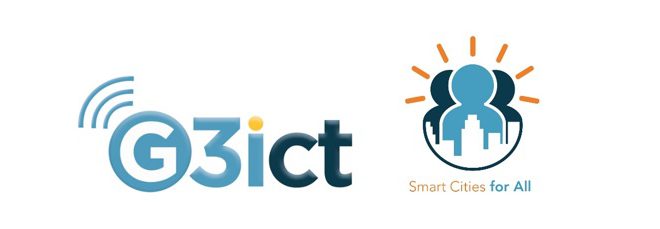Raleigh and Smart Cities for All Partner to Explore Power of Technology and Inclusion
PRESS RELEASE
FOR IMMEDIATE RELEASE: April 25, 2019
Contact: Udita Singh, G3ict, udita.singh@g3ict.org
Smart Cities for All partners with Raleigh as second city for Digital Inclusion pilot project.
Raleigh, a city committed to being both smarter and more inclusive is piloting Smart City Digital Inclusion assessment tool created by G3ict and World Enabled with Microsoft’s support.
RALEIGH, N.C. (April 25, 2019) – This week, the Smart Cities for All global initiative, a collaboration of G3ict and World Enabled, two nonprofits with a history of leadership in inclusive, accessible design, has convened in Raleigh a team of global smart technology and inclusion experts to track the city’s progress and measure commitment to digital inclusion.
The Smart City Digital Inclusion Maturity Model tool helps cities evaluate the current state of ICT accessibility and inclusion of persons with disabilities in city digital and smart services. Focused on a broad range of functions important to all cities, such as communications, procurement, training, and technology standards, it defines key performance indicators and metrics to support advancing accessibility and digital inclusion in a smart city context.
James Thurston, G3ict Vice President and Smart Cities for All Managing Director praised Raleigh’s commitment to using technology to benefit all people in the city, including persons with disabilities. “We are thrilled to bring here to Raleigh to work with its leadership our team of experts with decades of experience,” said Thurston. “This week we have begun using our Digital Inclusion Maturity Model tool to support the commitment to progress of executives and staff across all city departments.”
In October 2018, Raleigh released its first ever Smart City strategy. That strategy defined five strategic priorities and an organizational plan to pursue them. The city, led by Chief Information Officer (CIO) D. Darnell Smith, conducted a comprehensive assessment to develop the strategy, including a benchmark survey of more than 200 city employees and multiple community and partner meetings. This week’s pilot assessment with Smart Cities for All will lead to a roadmap to complement to Raleigh’s Smart City strategy.
“The City of Raleigh is excited about its selection by Smart Cities for all as a pilot City”, said D. Darnell Smith, Raleigh’s CIO. ” We embrace their thought leadership on Digital Inclusion. This effort will help ensure our technology strategies support accessibility for all.”
“At Microsoft we are making investments in accessibility across all our business units and believe it’s an imperative for all organizations, including cities, to create cultures of inclusion. We commend Raleigh for prioritizing accessibility and inclusion across their digital environment so that all citizens are empowered to achieve more. The Smart Cities for All Digital Inclusion Maturity Model is a tool to help achieve that important objective,” said Megan Lawrence, Accessibility Evangelist at Microsoft. “The Smart Cities for All Digital Inclusion Maturity Model is a tool to help achieve that important objective.”
During this week’s pilot of the Smart Cities for All Digital Inclusion Maturity Model, the expert team convened by G3ict its partners is meet with 19 city departments to understand how effectively the city coordinates its digital inclusion and smart city efforts to create inclusive experiences for everyone. The result of the pilot will be an assessment of Raleigh’s progress on digital inclusion and a roadmap for making more progress.
About Smart Cities for All
In 2016, G3ict partnered with World Enabled to launch the Smart Cities for All global initiative. Since then, Smart Cities for All has defined the state of ICT accessibility in cities worldwide and created tools and a path forward to improve the digital inclusion of persons with disabilities and older persons. Our goal is to eliminate the digital divide for persons with disabilities and older persons in Smart Cities around the world. We are partnering with leading organizations and companies to create and deploy the tools and strategies needed to build more inclusive Smart Cities.
Related Posts
Upcoming Events
There are no upcoming events.




